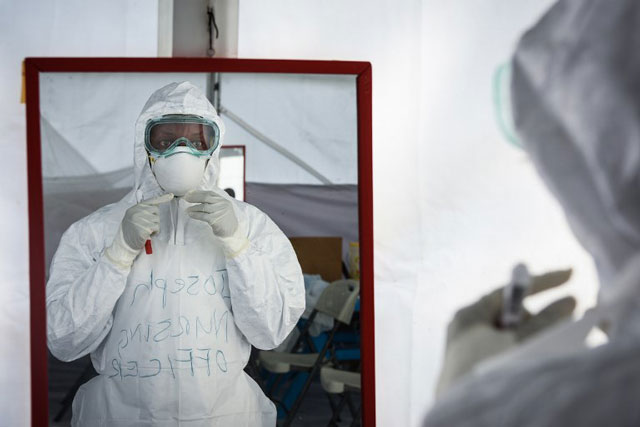
What WHO emergency declaration means
| THE INDEPENDENT | On July 17, the second worst Ebola outbreak of all time, in the Democratic Republic of the Congo (DRC), was officially declared an international Public Health Emergency of International Concern.
The World Health Organisation (WHO) said this means all countries should “take notice and redouble our efforts”.
“It is time to work together in solidarity with the DRC to end this outbreak,” said WHO chief Tedros Adhanom Ghebreyesus.
The announcement was made when more than 2,500 cases of infection had been reported in DRC, and nearly 1,670 had died. That is a 67% mortality rate while about 80 new cases are reported weekly in DRC.
The WHO which at three previous meetings had rejected calls to declare the emergency said it was moved by recent confirmed cases, including one in Goma, a city of almost two million people on the border with Rwanda, and the gateway to the rest of DRC and the world. According to the WHO, however, the Ebola risk remains very high at national and regional levels but still low at global level.
The WHO has warned that the nearby countries of Rwanda, South Sudan, Burundi and Uganda are the most at risk, while Central African Republic, Angola, Tanzania, Republic of Congo and Zambia are in a second tier.
According to WHO’s International Health Regulations, which constitute a binding legal agreement involving 196 countries across the globe, a Public Health Emergency of International Concern (PHEIC) is defined as, “an extraordinary event which is determined to constitute a public health risk to other States through the international spread of disease and to potentially require a coordinated international response”.
This definition implies a situation that is: Serious, sudden, unusual or unexpected, carries implications for public health beyond the affected State’s national border, and may require immediate international action.
More funds expected
The decision is expected to lead to more funding being raised for the response teams in the field as international support is stepped up.
“The cheapest strategy is to invest fully at this point and to stop the current outbreak rather than to under-invest now and have the outbreak linger over a longer timeframe and possibly spread further geographically,” said Mark Lowcock, the UN Emergency Relief Coordinator on July 15 in Geneva.
The WHO decision will also give the DRC’s Ministry of Health more flexibility to ensure response teams reach even the remotest areas.
According to Yap Boum, Professor in the faculty of Medicine, Mbarara University of Science and Technology, more means are needed to ensure that teams are able to engage communities. Part of this is ensuring they have the logistics to access them, especially in the most remote places.
But he says the WHO decision is not a silver bullet for ending the Ebola outbreak.
He says the outbreak which is in a war conflict zone and in major cities of Beni and Goma cannot be solved with a technical solution, such as more funding.
He says the issue of unrest in North Kivu needs to be solved as it remains one of the major catalysts of this outbreak.
“Solving the outbreak requires a peaceful environment, wherein the community trusts the Ebola response team, and therefore, increases its engagement,” he said in an article in `The Conversation’, “Without higher community awareness and engagement, it is difficult to see the end of Ebola outbreak in the DRC.”
Prof. Yap Boum said since major efforts by the tireless Ebola response teams, community engagement, surveillance, vaccination and communication have failed to reduce new cases of infection, it means people are still avoiding going to Ebola treatment centres to get care. Although more than 100,000 people have been vaccinated, it has also not stopped the spread.
There have been about 200 attacks on health facilities and workers since January, with seven people killed in the violence to date. Dr Richard Mouzoko, an epidemiologist working for the WHO, was killed in April and clinics have been torched. Another two health workers were killed in one week in July.
According to WHO, just when health workers start to get control of the virus in one area it appears in another and every attack sets teams back.
“Every attack makes it more difficult to trace contacts, vaccinate and perform safe burials,” Tedros said.
He said despite the complexity of the challenge, more than 161,000 people have been vaccinated, 140,000 contacts traced and 71 million travellers screened, at a cost of $250 million “and counting”.
The outbreak was declared in the DRC’s North Kivu region on August 01, 2018 and has since been classified as a Level 3 Emergency – the most serious – by WHO, triggering the highest level of mobilisation. The UN overall has also recognised the seriousness of the emergency by activating the “Humanitarian System-wide Scale-Up” to support the Ebola response. But the WHO committee also said it was disappointing that there had been recent delays in securing more international funds to fight the disease, which had constrained the response.
 The Independent Uganda: You get the Truth we Pay the Price
The Independent Uganda: You get the Truth we Pay the Price


